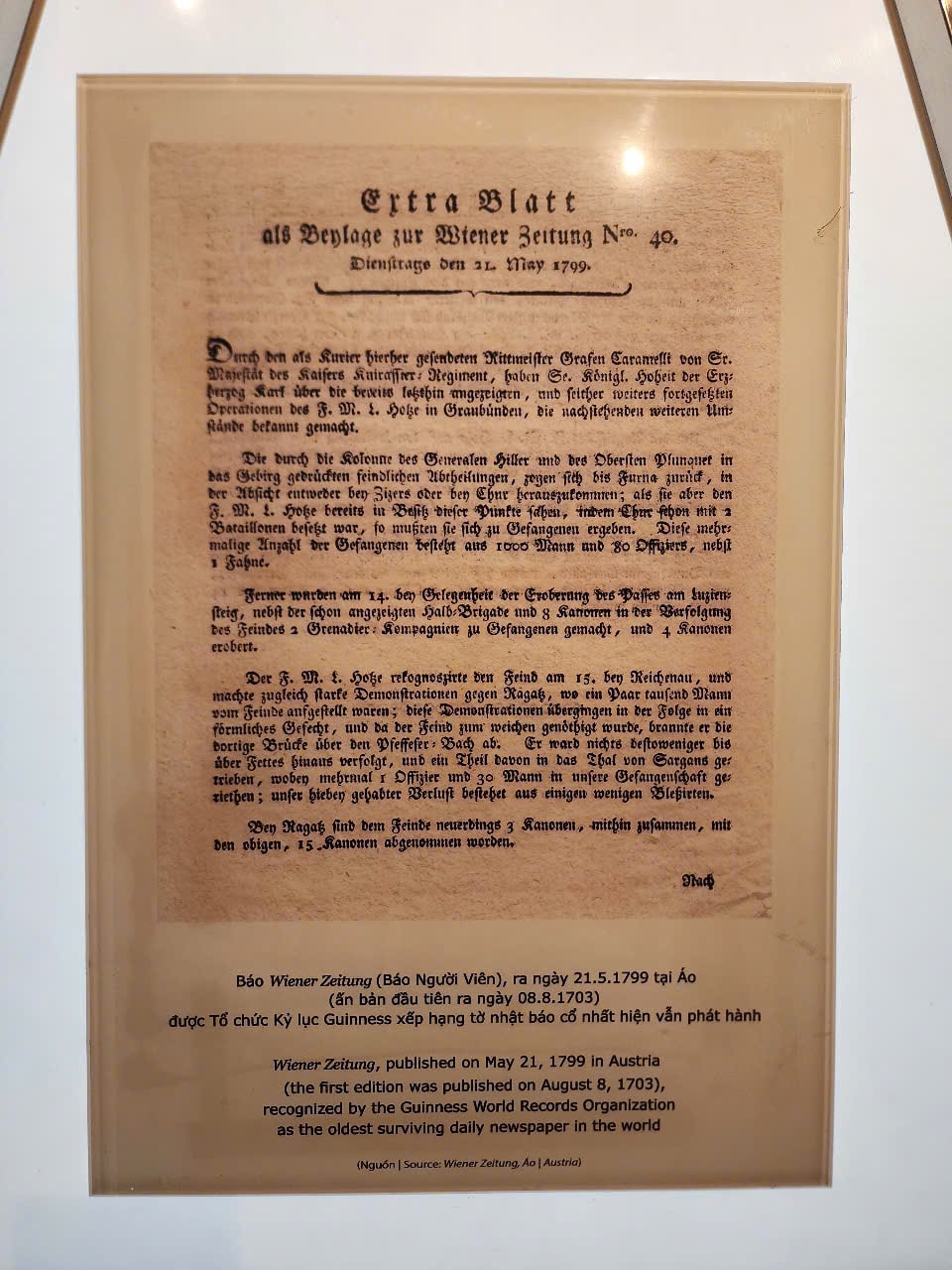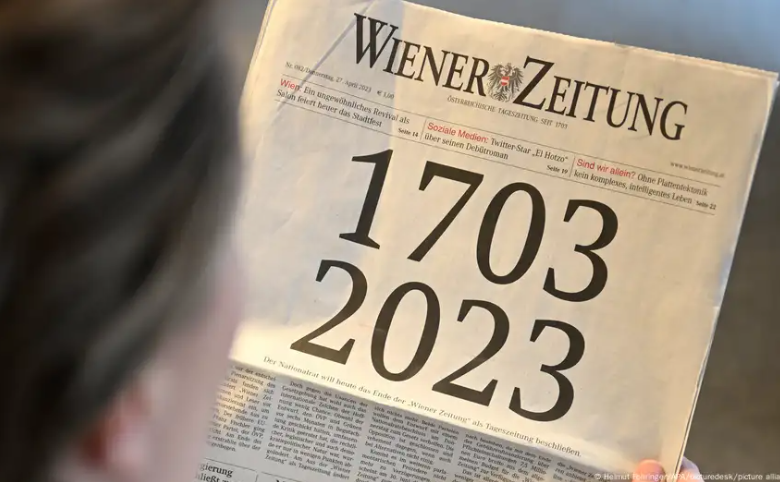The printed newspaper survived for 320 years
The Wiener Zeitung was founded on August 8, 1703, under the name Wienerisches Diarium , in the glamorous Vienna. At that time, it promised to bring news “directly, without rhetoric, without poetry”.

From its crude bi-weekly pages, the paper quickly became the official voice of the Austrian Imperial court, providing exclusive information from the imperial palace. Over time, it marked important historical events: from reporting on the battles between the Austrian and French armies in 1799, to becoming the official gazette of the Austrian government in 1810.
The newspaper has survived 12 presidents, 10 emperors, two republics, and the Nazi shutdown from 1939 to 1945.

What makes Wiener Zeitung so special?
Not only is its longevity remarkable, but so is its ability to adapt and maintain editorial independence despite being owned by the Austrian government. The paper once had a circulation of 20,000 on weekdays and double that on weekends, a modest but remarkable number for a publication focused on quality. From reporting on Mozart in 1768 to interviewing figures like Arnold Schwarzenegger and EU Commission Vice President Věra Jourová in her final days, Wiener Zeitung has always told timeless stories.
But every story, no matter how beautiful, can come to an end. In April 2023, a new law passed by Austria’s coalition government changed all that. It abolished the requirement that companies pay to publish legal notices in print—the main source of income for the Wiener Zeitung over the centuries. The result was a financial shock: the publisher estimated losses of 18 million euros, and was forced to cut 63 jobs, with the number of editors reduced from 55 to 20. “These are difficult times for quality journalism,” the paper wrote in its final editorial, as it struggled to compete with “fake news, cat videos and conspiracy theories” on digital platforms.
On June 30, 2023, the Wiener Zeitung published its last daily print edition. Those pages were more than just paper and ink, but a regretful farewell to a journalistic legacy that was once recognized by the Guinness World Records as the oldest newspaper still in circulation.

The paper isn’t completely gone, though. It’s moving into the digital space, continuing to publish online and planning a monthly print edition.
But can the online version retain the spirit of the pages steeped in history? Can a printed periodical evoke the same feeling of turning the pages and smelling the ink as it did in the past?
Moving Wiener Zeitung to digital space
The end of the daily print edition is not only a loss for the Wiener Zeitung, but also signals a challenging period of transition for traditional journalism.
The title of “the world’s oldest daily newspaper” now belongs to Germany’s Hildesheimer Allgemeine Zeitung , founded in 1705. But for Austrians, the Wiener Zeitung remains a symbol of endurance and quality, a historical witness that has recorded the country’s ups and downs over more than three centuries.

Vice President Věra Jourová, in an interview with the Austrian press agency, expressed her dissatisfaction with the media: “The Wiener Zeitung has played a great role in informing people.” The statement serves as a reminder that the value of quality journalism cannot be measured by revenue. In an age where information is abundant and truth is scarce, the absence of a newspaper like the Wiener Zeitung is a poignant one.
As you read these lines, perhaps somewhere in Vienna, someone is keeping the last edition of the Wiener Zeitung as a souvenir. Perhaps they are remembering the days when they held the newspaper in their hands, flipped through each page, and felt the vivid history through each word. The Wiener Zeitung, although no longer printed daily, will continue to live on in memory and in the digital space. But for those who love journalism, the departure of the printed edition is an unforgettable regret, like closing a precious chapter of humanity.
Source: https://baoquangnam.vn/chuyen-thu-vi-ve-wiener-zeitung-to-bao-in-lau-doi-nhat-the-gioi-3157109.html







































![[Photo] The 9th Congress of the Party Committee of the Office of the President, term 2025-2030](https://vphoto.vietnam.vn/thumb/1200x675/vietnam/resource/IMAGE/2025/6/20/78e7f27e8c4b4edc8859f09572409ad3)
























![[Maritime News] Wan Hai Lines invests $150 million to buy 48,000 containers](https://vphoto.vietnam.vn/thumb/402x226/vietnam/resource/IMAGE/2025/6/20/c945a62aff624b4bb5c25e67e9bcc1cb)










































Comment (0)